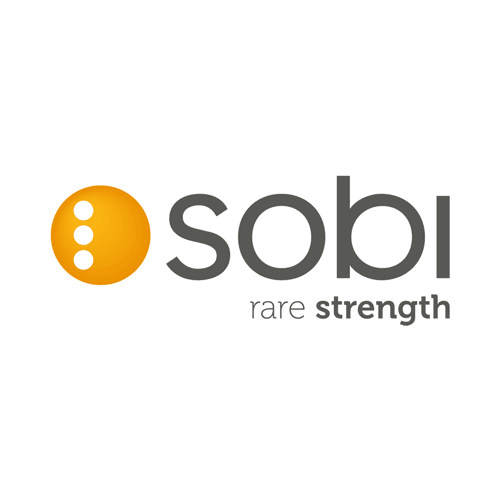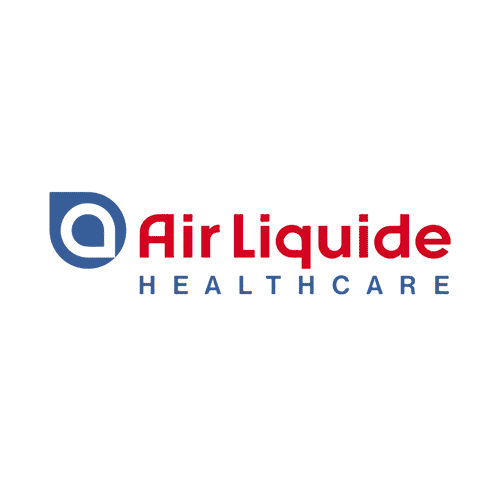
Rare diseases

Optimize market access and care pathways for orphan drugs
Our specialized team supports healthcare players in their projects to innovate, understand and gain access to orphan drug markets.
They trust us


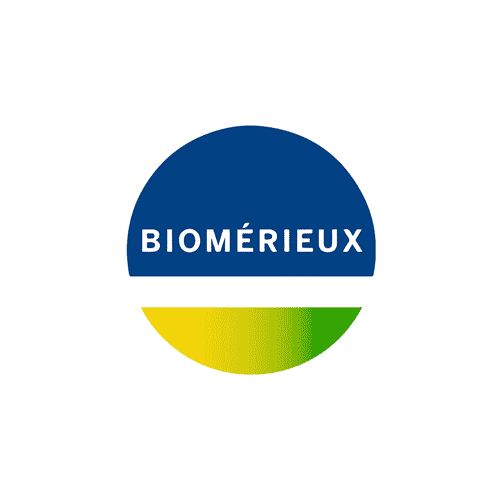


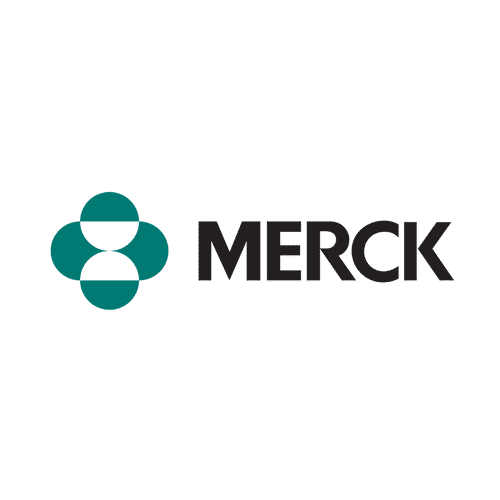

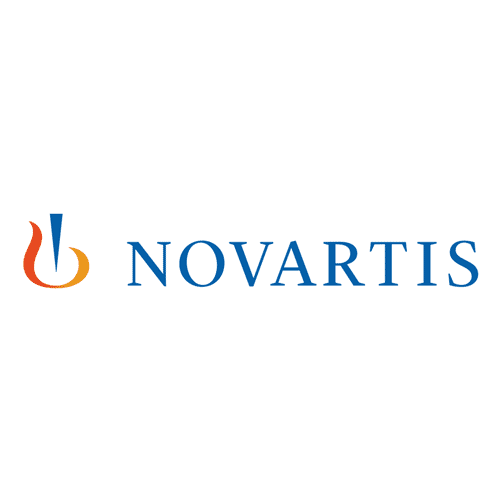

The challenges related to rare diseases and orphan diseases
The rare disease market is experiencing strong growth and transformation across the world. Over 230 orphan drugs have been approved on the European market since early 2000.
As a result, the typology of rare diseases, their challenges and their market situations are evolving significantly. This term now includes:
- ultra-rare pathologies without any suitable medical solution,
- relatively unknown rare diseases still awaiting solutions,
- rare but well-known pathologies, with several treatment options, representing considerable progress for patients in established markets that are more similar to so-called “specialty” markets.
Even though this market is developing, manufacturers, biotechs and research centers are facing many challenges, including:
Rare and orphan diseases, in particular those with a strong genetic component, have regularly been the focus of the development and use of new advanced (bio)therapies. After different generations of recombinant proteins (replacement, chaperones, etc.), therapy and gene modification approaches (expression of transfected genes, gene modification in vivo, siRNA, saRNA, mRNA, etc.) offer a new wave of transformative hope for patients with these rare diseases and remain a real field of exploration.
What are the most relevant new technologies to continue transforming the field of rare diseases? Which technological approach should target which disease and how can the current limits to address all sub-populations be overcome?
Recruiting patients is more complex for an orphan drug because the population is small and often poorly identified. The comorbidities associated with most genetic diseases often complicate the analysis of the results, and it can be difficult to establish criteria for clinical evaluation and appropriate biomarkers. How many patients are affected and how can patients be found for a clinical trial?
How many patients are affected and how can patients be found for a clinical trial?
Orphan diseases are often difficult to diagnose because the level of awareness is low. Although they are sometimes helped by patient associations, pharmaceutical players very often have to “create” the market by raising awareness and educating doctors and authorities on the targeted disease and by structuring the organization of the patient journey.
How can healthcare professionals and authorities find out about this rare disease and the existence of a treatment?
The paths to register a new orphan drug and to obtain reimbursement differ from one country to another, as do the regulations and the actors involved. Different acceleration and market access strategies exist for these very specific drugs, and are often specific to each country. Also, access frameworks and the preferences of healthcare product evaluators are changing rapidly for orphan drugs and offer new possibilities or new challenges.
What is the regulatory framework and what path should be taken to obtain and accelerate the marketing of an orphan drug?
Prices per treatment can be very high and affordability of orphan drugs has become a major issue for payers as the number of orphan drugs increases dramatically. How will a drug be assessed and possibly reimbursed in a given country? At what price should the treatment be positioned? How can its value be shown?
How will a drug be assessed and possibly reimbursed in a given country? At what price should the treatment be positioned? How can its value be shown?
Healthcare professionals are either not used to dealing patients with rare diseases, or they are not used to having many of these “rare” patients. This makes diagnosis often difficult and time-consuming, as is the coordination between the different actors throughout the patient pathway.
How can care pathways be organized and optimized to improve the level of diagnosis and accessibility to treatment?
How we support you in your projects related to rare diseases or orphan diseases
For more than 25 years, Alcimed has been supporting its clients on many issues related to orphan and ultra-orphan diseases, in Oncology and outside Oncology. Indeed, we have carried out more than 150 projects in this field on more than 100 rare diseases for different actors such as:
- National and European institutions and research centers (for example, the European Commission, INCa, AFM / Genethon)
- European and North American biopharmaceutical and pharmaceutical companies, biotechnology companies and professional associations (e.g. Genzyme (Sanofi), Shire (Takeda), Endo, Amgen, Chiron, Actelion (J&J), Alexion (Astrazeneca), PTC Therapeutics, Vertex, Sanofi, J&J, Roche, Merck-Serono, Novartis, Novagali (Santen), Spark Therapeutics (Roche), Insmed, Bone Therapeutics, Cellectis, NPS Pharma (Takeda), Intermune (Roche), EFPIA, EBE, EuropaBio etc.)
- Patient associations (e.g. SFPA).
The diversity of our clients (industrial companies, biotechs, research institutes, professional associations, national or European institutes, etc.), the geographic areas we explore, and the types of projects we develop, give us a global and in-depth understanding of the issues related to rare diseases.
Our projects cover areas as diverse as new technologies and therapeutic approaches for orphan diseases, search for funding opportunities, preparation for the launch of new orphan drugs, understanding of disease management and patient care pathways, assessment of market and licensing opportunities, market access, pricing and reimbursement models, regulatory developments and operational support (patient identification, care pathways optimization and many more).
What they say


"Together between Alcimed and Nestlé Health Science, we made informed decision on where the best opportunities were and why and how to select the most valuable assets in our investigation."
Bernard Cuenoud
Global Head of Research and Clinical Development


"The Alcimed teams were great for the creation of this positive atmosphere and in line with all the expectations that the Sobi teams had."
Antoine Delmotte
Immunology Complement & Speciality Care Business Unit Director
Examples of recent projects carried out for our clients in rare diseases
Support for a pharmaceutical player in optimizing the emotional journey of patients with a rare disease
One of our clients, a leading pharmaceutical player, wanted to improve the care of patients with a rare disease by developing a high value-added service offering that improves their well-being and quality of life throughout their care pathways (from diagnosis to palliative care).
To do this, our team interviewed patients, caregivers and associations in each country concerned in order to identify the levers for improving their well-being and their quality of life that could be addressed by the development of services. Following this, our team pre-tested these service ideas with healthcare professionals, before organizing a workshop to co-construct a service development roadmap with the medical and marketing teams of our client.
Ultimately, several services were deployed in pilot countries and then extended to other countries in the area, improving the patient journey and positioning our client as a major player in public health.
Roadmap for launching a new treatment for a rare genetic disease in Europe
Alcimed supported a US biopharmaceutical client to define the launch strategy for its orphan drug in Europe. It then helped its client to structure a concrete and operational plan, both at a European level as well for each target country.
As a real roadmap for each of the key functions of the company (medical, marketing, production, regulatory, sales), the plan extends from pre-launch (before obtaining the MA, the Marketing Authorization) until the first sales.
Our team is also involved in regularly updating this plan, depending on internal or external developments around this launch.
Optimization of the care pathway for patients with a rare disease in Europe
We have supported the European Medical Department of a pharmaceutical manufacturer in optimizing the care pathway for patients suffering from a rare respiratory disease in several European countries. As this rare disease is difficult to diagnose and often confused with more common respiratory diseases, the patient diagnosis time was too long (2 to 3 years). Our client wanted to position itself as a public health player by providing reference hospitals with Alcimed’s service to:
- Diagnose the current coordination of care between the different health actors registered on the patient journey
- Co-define with this multidisciplinary team an ideal patient care model and an associated action plan
- Implement actions defined at local and national level.
The result for our client? A reduction in the time taken to diagnose patients and a general improvement in physician coordination, an increase in therapeutic support and a change of perspective for the sales teams.
Study of the regulatory framework: accessibility of treatment for orphan diseases
Support for a player in the pharmaceutical industry in understanding the fundamental factors of market access for orphan drugs in 9 emerging countries.
By taking stock of internal knowledge and collecting missing information in terms of the market and regulatory analysis in particular, Alcimed has enabled its client to obtain an overview of the regulations on orphan drugs in emerging countries and to classify these countries according to their level of accessibility.
Preparation of the setup of clinical trials in two rare diseases for a major pharmaceutical player
Alcimed supported a major pharmaceutical player in developing its rare disease portfolio by identifying the best hospital centers to target for its clinical trials in two rare hematological disorders.
First, we deciphered the care ecosystem in these two rare diseases (epidemiology, rare disease care network, care pathway, competitive clinical trials, KOLs) to identify potential investigational centers. Then we collaborated with the client to create a set of criteria for the initial selection of qualified centers for their clinical trials. Finally, we refined the most relevant centers by interviewing them and prioritizing the ones to target first.
On this basis, 5 easily actionable centers were identified as 1st priority centers and have been approached by the client to undertake their clinical trials thanks to the connections we had made with the centers during the project.
Understanding of trends in rare diseases, with a focus on rare genetic diseases in neurology and pediatric oncology for a leader in the pharmaceutical industry
Alcimed worked with a top pharmaceutical client to prepare and define their 2030 R&D strategy by understanding the main trends in rare genetic diseases in neurology and pediatric oncology.
To do so, we identified the 4 key steps that lead to a successful launch of new products for rare diseases : Clinical development, Manufacturing, Regulatory and Pricing, Go-to-market models.
Then, thanks to the interviews undertaken by the team with other laboratories working on rare diseases, we gathered all the best practices and successful examples for the launch of new therapies in this area. At the end, our team built an analysis framework summarizing the key insights which led to recommendations about the client’s R&D strategy on rare diseases.
This investigation enabled the client to define the market opportunities for rare genetic diseases and viable business models in adequation to their strategy.
You have a project?
To go further
Healthcare
Alcimed Position Paper – « Quality of life in cancer care – Do we care enough? »
Position paper "Quality of life in cancer care - Do we care enough?". Quality of life is very important for patients that suffer often of treatment-related side effects, tumor-related side effects, ...
Cross-sector
3 solutions to facilitate the activities of informal carers of rare disease patients
Solution n°1: providing informal carers with diagnosis tools to help identify the rare disease One of the first problems encountered by patients with rare diseases is the long and stressful process ...
Cross-sector
Rare diseases care pathway: a major challenge to harmonize patient management
The quality of patient care and management suffers from the complexity of care pathways in rare diseases, resulting in inequalities across the territory, due to local variations.
Founded in 1993, Alcimed is an innovation and new business consulting firm, specializing in innovation driven sectors: life sciences (healthcare, biotech, agrifood), energy, environment, mobility, chemicals, materials, cosmetics, aeronautics, space and defence.
Our purpose? Helping both private and public decision-makers explore and develop their uncharted territories: new technologies, new offers, new geographies, possible futures, and new ways to innovate.
Located across eight offices around the world (France, Europe, Singapore and the United States), our team is made up of 220 highly-qualified, multicultural and passionate explorers, with a blended science/technology and business culture.
Our dream? To build a team of 1,000 explorers, to design tomorrow’s world hand in hand with our clients.
A “rare disease” is when a disease affects a very small proportion of the population, generally less than 8 people in 10,000.
An “orphan drug” is a drug that obtains privileged regulatory status from the authorities (the “orphan designation”) intended to encourage the development of therapies for these orphan diseases.
Rare diseases affect around 260 to 440 million individuals worldwide and the rare disease treatment market is estimated at 216,65 billion USD in 2024 worldwide. According to a study published in Nature in 2023 regarding the trends in rare disease drug development, the biggest area of development in rare diseases is cancer, especially pancreatic cancer, acute myeloid leukemia and ovarian cancer. Indeed, cancer represents 43% of indications under development worldwide. The second biggest area is neurological therapies, particularly indications for amyotrophic lateral sclerosis.



